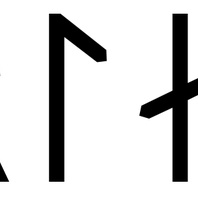
Viking Names
Thorlak
The male name Þorlákr is recorded in a number of Scandinavian runic inscriptions. It is rare in England but is possibly recorded in a minor name Thurlowbooth in Crich, Derbyshire. There is a further East Midlands connection, as its best-known bearer, the Icelandic bishop Þorlákr, studied in Lincoln in the twelfth century.
Read More
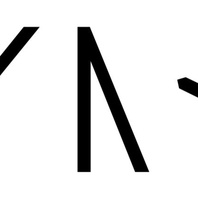
Viking Names
Asmund
Ásmundr is a very common name in Scandinavia throughout the Viking Age and later. It is recorded in medieval documents from both Lincolnshire and Yorkshire, in field-names in Lincolnshire, and in major names in North and West Yorkshire such as Osmotherley and Osmondthorpe. It is an Old Norse compound name. Its first element Ás- ‘a god’, frequent in Viking Age names, presumably refers to Old Norse deities such as Odin and Thor, though the latter name appears in its own right in many names, both male and female, while Odin is a very rare element in personal names. The second element-mundr is either Old West Norse ‘protector’ or Old Norse-Icelandic ‘gift’.
Read More

Viking Names
Butti
Butti was a rare name in Scandinavia but is attested as an element in Norwegian place-names. It is also believed to be the first element of the place-name Budby, Nottinghamshire.
Read More

Viking Names
Bild
The Old Norse male personal name Bíldr is originally a byname meaning ‘blade’. It is the personal name of a fictional character in West Scandinavia and is frequently used as a byname there. A Bildus is mentioned in Saxo and the name appears as a byname in Denmark and may be found in some Danish place-names. Bildr is the first element of the place-name of Bilsthorpe, Nottinghamshire.
Read More
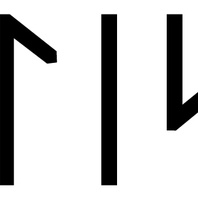
Viking Names
Blesi
The male name Blesi is found in two Swedish runic inscriptions and is also recorded as the name of one of the original settlers of Iceland. It was originally a by-name, meaning ‘blaze, white spot on a horse’s forehead’. Blesi is also the first element in the place-name Bleasby, Nottinghamshire.
Read More
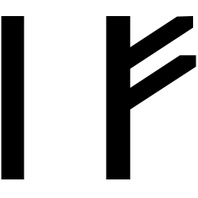
Viking Names
Ref
Refr is a fairly common male name in the Viking world. It is found in two Swedish runic inscriptions and may originally have been a nickname, as it means ‘fox’. It forms the first element of Revesby, Lincolnshire.
Read More
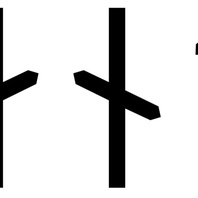
Viking Names
Sandi
Sandi is either a short form for names in Sand- or an original byname from Old Norse sandr ‘sand’. A single instance of Sandi is recorded as a byname in West Scandinavia. It is also recorded in Sweden. Sandi is also the first element in the place-name Saundby, Nottinghamshire.
Read More

Viking Names
Broddi
Broddi, the first element in the place-name Broadholme, Lincolnshire, is otherwise mainly recorded in Iceland.
Read More

Viking Names
Bruni
Brúni is a weak variant of Brúnn, originally an Old Norse male byname meaning ‘brown’. The latter name is recorded in some Norwegian place-names, but the independent instances may be loans from Continental Germanic. The weak form of the name, Brúni, was the name of one of the original settlers of Iceland in Landnámabók ‘The Book of Settlements’, but this name soon dropped out of use in Norway. The weak form is common in Swedish runic inscriptions (as bruni) and occasionally appears in Denmark. Brúni may be the first element in the place-name Brumby, Lincolnshire.
Read More

Viking Names
Saxi
Saxi was originally a byname derived from Old Norse noun sax ‘short, one-edged sword’, but possibly in some instances derived from an ethnonym from the name of the Saxons. An original East Scandinavian name, it is fairly common in Sweden and very common in Denmark. The name is rare in Iceland, although it is borne by one individual in the settlement period (c. 870-930). Although common in Eastern Norway, there is only a single instance of the byname Sax is recorded in West Scandinavia in the tenth century. Saxi is found in several place-names in Normandy. It is well-attested in Lincolnshire and Yorkshire although some forms may represent the Continental Germanic male personal name Saxo. Occasionally it is difficult to determine whether the first element in place-names such as Saxby All Saints, Lincolnshire and Saxby, Leicestershire is Saxi or the Scandinavian genitive plural form of an ethnonym: Old English S(e)axe, Old Norse Saxar ‘Saxons’.
Read More
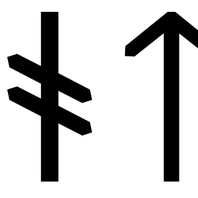
Viking Names
Fot
The Old Norse male personal name Fótr is the name of a fairly prolific Swedish rune-carver and is found elsewhere in Scandinavia. In England, the name occurs in several place-names in Lincolnshire (Fotherby, Fosdyke and Foston), Foston, Leicestershire, and possibly in another Foston in Derbyshire. In Fotherby, the place-name preserves the original Old Norse genitive singular ending (ie. as in Fótar). Such clear indications of Old Norse grammar survive relatively rarely in modern forms of place-names. Originally, Fótr was a by-name, meaning ‘foot’.
